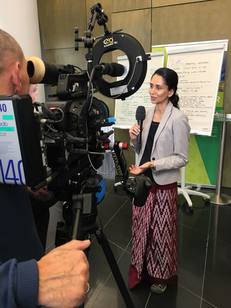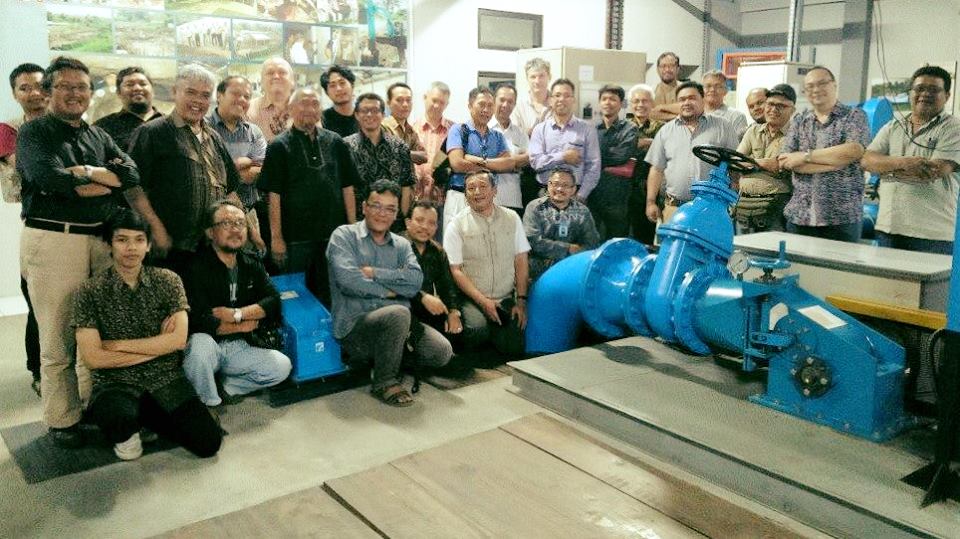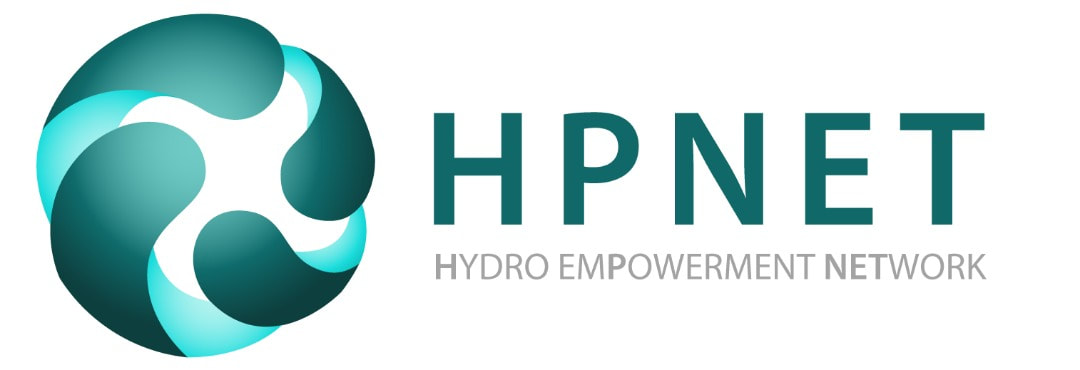Across the region, MHP practitioners are increasingly facing an un-equal playing field because “mini-grids” are generalized as being synonymous to “solar PV mini-grids”. The ultimate result of this phenomenon is missed opportunity to accelerate rural energy access toward SE4ALL goals. Its root cause is that decision makers of international and government supported rural energy programs are technology agnostic but do not yet acknowledge technology differentiation, i.e. the cost-benefits of each type of mini-grid technology.
To start addressing these critical gaps, in mid-2017 HPNET launched the "Mini-Grids Webinar Series" in partnership with Energypedia and the Skat Foundation. The series featured themes that de-mystify the value-add of MHP toward meeting national electrification targets:
- Webinar 1, May 2017: Differentiating Between Mini-Grid Technologies
- Webinar 2, June 2017: Grid Interconnection: What happens to micro hydro projects when the national grid arrives?
- Webinar 3, July 2017: Productive End Use of Micro Hydro: Three Examples of How to Make It Happen
With senior most experts as speakers, well-prepared content, interactive facilitation, and follow up knowledge products, the webinars attracted ~400 participants! We realized that webinars can be a low carbon and effective solution to knowledge exchange, and therefore we look very forward to launching our 2018 webinar series.
In addition to webinars and other online advocacy, HPNET works with seniors advisors to develop strategy and partnerships to empower proven local practitioners, ensuring they have access to an enabling environment for contributing their expertise to national electrification programs.
At our last biennial gathering, in late 2016 in Kathmandu, we heard a resounding call from our members for a country-wise network operations structure, to instill inclusive decision-making for a growing and diverse membership. Therefore, using a consensus-building approach in 2017, we refined our structure to include a Board of Representatives, Board of Advisors, Thematic Advisors, and a Secretariat, designed to support our Working Groups in creating country-specific and regional impact. We’ve kicked off 2018 by operationalizing the new structure, building onto outcomes of our first 4 years.
HPNET’s formation and development thus far could not have been possible without the WISIONS of Sustainability initiative at the Wuppertal Institute for Climate, Environment and Energy. This month I took part in WISIONS’ webinar on energy practitioner networks to present HPNET’s approach and outcomes. The webinar was a follow up to WISIONS' side event at the COP23, "From Paris to Action at Local Level in the Global South -- What Role Can Local Energy Practitioners and Existing Knowledge Networks Play," where I had the privilege to take part.
HPNET synergizes MHP practitioners in Afghanistan, Bangladesh, India, Nepal, Pakistan, and Sri Lanka. With the exception of Bangladesh where MHP still requires much advocacy, all of these countries have a long established practice of MHP implementation. However practice-to-policy development varies in each context.
- Sri Lanka and Nepal have paved the path in policy for scaling and sustainability of MHP. In Sri Lanka, the sector has tapped nearly every site below 1MW and now with 99% of the country having access to the central grid, Energy Forum is facilitating community-owned MHPs to sell electricity to a welcoming utility. A similar scenario has unfolded in Nepal, with the country's first grid interconnection policy established in 2017 and the first interconnected MHP commissioned this month, thanks to the AEPC-RERL/UNDP initiative. Capacity building continues to play a key role for Nepal MHP, with the Nepal Micro Hydropower Development Association being supported by AEPC partners to re-establish the Regional Center for Excellence in Micro Hydro, and with the RERL/UNDP-Winrock partnership to increase knowledge exchange at the village level. HPNET will facilitate learning between these developments and practitioners in other countries.
- Afghanistan and Pakistan are also leading contexts for MHP in South Asia, with several thousand projects implemented by local practitioners. The Aga Khan Rural Support Programme (AKRSP) anchors MHP developments in Pakistan, facilitating local partners to advance socio-technical aspects of MHP, including community-run utilities, project-to-project interconnection, smart meters, and local manufacturing. In the Chitral the MHP Resource and Service Centre has been newly established with WISIONS support. In Afghanistan MHP continues to receive attention in national electrification policy but implementation has been challenged. Community-based practitioners, such a Remote Hydrolight, continue to advance the sector but with isolated efforts. In 2018 HPNET will work closely with leading practitioners in Afghanistan and Pakistan to support knowledge, advocacy, and networking needs.
- India is a context where MHP has had a presence in multiple sub-regions for decades; however, due to a lack of well-developed local capacity building and financing programs for the local practitioners, it has not been able to come out of the shadow of solar PV mini-grids development. Over the last 2 years, HPNET has supported leading MHP practitioners in India to develop knowledge and strategy partnerships. 2018 will culminate in a series of activities – ground truthing, online forum, and practice-to-policy round table – facilitated by HPNET with organizations that understand the value add of MHP in India’s rural electrification scenario. In parallel practitioners continue to address local needs. For example, VillageRES and the Meghalaya Basin Development Authority are incubating local manufactures and entrepreneurs in Meghalaya to adopt MHP for local livelihoods development.
- Indonesian MHP has been an immense source of inspiration for our members in Southeast Asia. GTZ (now known as GIZ) and EnDev Indonesia's investment in capacity building of local practitioners for 25 years led to local manufacturing with import quality outputs. The Indonesian government has also supported MHP over the years, with 7 ministries having supported implementation of hundreds of projects. Much of these developments took place thanks to local organizations, such as the Asosiasi Hidro Bandung, IBEKA, and Yayasan Mandiri, facilitating between local practitioners, international organizations, and the government.
| In 2017 a special reunion of the ‘change makers’ behind Indonesian MHP met at the ASEAN Hydropower Competence Training Center (HYCOM). Despite their success, in 2017 practitioners severely struggled with access to financing and recent policy changes. This year HPNET will facilitate strategy-building to support overcoming these barriers. |
- Myanmar’s MHP sector has been HPNET’s re-discovered jewel since 2014, in supporting the Renewable Energy Association of Myanmar (REAM) to ground truth and advocate for the local practitioners’ incredible progress the last 30-years -– achieved without the support of government or international aid. However, with Myanmar now a young democracy local practitioners must transition to collaborating with government and international agencies. REAM and HPNET's role in this process has been critical. The financing, technology, and policy solutions that HPNET is facilitating in Myanmar serve as blueprints for our potential contributions across the S/SE Asia region. In 2017 I was honored to serve as a Fulbright Public Policy Fellow in Myanmar under REAM's mentorship, developing partnerships among diverse stakeholders and voicing the perspectives of the local private sector at every opportunity, including these webinars by organized by HPNET and Smart Villages. HPNET has exciting upcoming milestones in Myanmar, including access to financing, improved productive end use, and a country-wide mapping MHP!
| | |
- Malaysia MHP development has been led by Tonibung’s CREATE and its partner Green Empowerment. Their approach is founded upon an indigenous rights movement, which in recent years has been able to facilitate the government to acknowledge decentralized renewable energy alternatives to large hydropower. Their activities empower the most local of stakeholders with CREATE as their vehicle. In 2018 Tonibung will focus on the strengthening of village entrepreneurs that implement MHP and develop productive end uses. HPNET will facilitate learning between CREATE and other MHP training centers in region.
- Philippines MHP implementation is anchored by SIBAT and Yamog. Some level of knowledge exchange is also hosted at the government’s Affiliated Renewable Energy Centers (ARECs). In 2017, along with inspiring implementation of community-based MHP and watershed protection, there has been a shift among practitioners to consider local manufacturing of turbines and electronic load controllers. This year HPNET will support its members with knowledge exchange activities that support their goals for development of local technology.
HPNET’s approach to in-country impact relies on cross-regional knowledge exchange on thematic areas prioritized by HPNET members, namely:
- Grid Interconnection and Project-to-Project Interconnection
- Access-to-Financing
- Productive End Use and Financial Viability
- Socio-Environmental Sustainability
- Technical Training Centers and Tools
- GIS Mapping for Scalability
- Strategic Advocacy of MHP
With an enhanced network structure in place, key priorities identified, and a dynamic set of diverse members, I look very forward to the year ahead! Please always reach out to us with ideas and inquiries.
Dipti Vaghela
Network Facilitator and Manager


